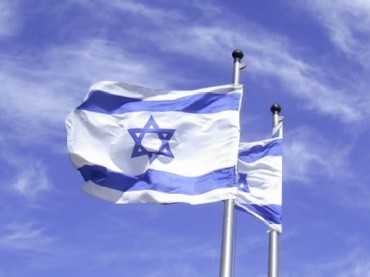
American student determined to remain enrolled despite friends being murdered
In a show of resilience since the Oct. 7 Hamas terrorist attack, Hebrew University in Jerusalem has kept its international study programs open to hundreds of foreign students while increasing support services.
One American citizen studying at the university told The College Fix that she knew several people who were murdered by Hamas terrorists on or soon after the attack, but she chose to remain at the school anyway this spring.
“Nan,” an Orthodox Jew who asked that her real name not be used due to safety concerns, said staying in Israel for college “just shows how powerful we as a people are, and I wanted to be a part of that.”
Since the terrorist attack, a number of United States higher education institutions have temporarily suspended their study abroad programs in Israel. These include the Indiana University system, the University of Notre Dame, and Dickinson College, a private Pennsylvania school that used to send students to Hebrew University, according to The Dickinsonian.
But Hebrew University’s international office told The College Fix that more than 700 foreign students chose to remain in its programs after the attack.
One of them, Nan, said the university has been very intentional about supporting students. She said professors “go above and beyond” for their students, encouraging them “to stay and to learn and to grow within their studies and within themselves” in spite of sociopolitical hardships.
The institution has been aiding students by offering “Israeli madrichim (counselors) who [are] available 24/7, emergency support, as well as psychological services, consultation, and a variety of social activities,” according to information provided to The Fix by Hebrew University.
Nan, who has spent five years in Israel, is part of the HU Rothberg International School’s Mechina Program, which provides personalized academic support, multilingual faculty and staff, Hebrew language classes, and more to international students.
Nan said a number of international students, including herself, knew people who were killed in the terrorist attack, and grief has had an impact on their daily studies.
“I had a class that morning when I found out, and I couldn’t be there…I had to tell my teacher ‘I’m sorry, I can’t be here. My friend died,’” Nan said. “There’s no response to that…there’s nothing to heal you or to help you process that.”
She added: “There is not one student that I’ve seen so far that can fully sit through a class and 100% concentrate on what’s going on.”
In a statement shared through the university, Jerusalem Deputy Mayor Fleur Hassan-Nahum described the city as “a haven for foreign students who have chosen to stay during the war.”
“We in Jerusalem are working to ensure that all Israeli universities remain a place for foreign students who wish to study in English and prefer to be in Israel following antisemitic upheaval at universities around the world,” Hassan-Nahum said.
At Hebrew University, there are weekly discussion groups, support programs, and volunteer opportunities for international students, such as taking food to people who have been injured, according to the university.
Professor Oron Shagrir, vice president of international affairs, said in a statement provided to The Fix that they also reinstated the Buddies Program, which connects Israeli students to international students for conversations about the Israel-Hamas conflict.
“Our team at the International Welcome Center of Rothberg International School focused on the specific needs of international students, both those who decided to stay and continue their studies in Israel and those who chose to leave,” Shagrir said.
MORE: New College of Florida offers ‘haven for Harvard refugees’ amid antisemitism on campus
Those studying at the university are learning to cope with the many disturbances caused by the war. Nan said these disturbances have come in many forms, including missing classes to observe the shloshim (mourning period) for her friend who was killed.
Often, it’s hard “to just focus on our math exam and not about our friends possibly getting killed because of who they are,” she said.
Nan told The Fix that they also have seen hostage “posters ripped down by university students,” presumed to be Arab.
Still, she said she believes it is important for her and her classmates to stay at the university and demonstrate their unwillingness to bend under pressure from those who “completely disagree with you existing and disagree with you being alive.”
It’s important “to be able to look at them back in the face and show them with your studies, and show them with your knowledge, and show them how you are as a person, that all that matters is you succeeding,” Nan said.
Although Israel is not her nation of birth, Nan said she feels a deep love for and connection to it. She said a sense of duty to the Jewish nation inspired her to become a legal citizen there, and now is her reason for remaining during one of the most turbulent times in its history.
She said success can take many forms, whether that’s “succeeding in living a free life, succeeding in living a safe life, [or] succeeding in being able to get as much knowledge as possible” out of a college education.
For Jewish students in particular, Nan said “it’s incredibly important to be given the opportunity to raise our voices and be listened to, and Hebrew U definitely has a space for us to do that.”
MORE: Lawsuit accuses UC Berkeley of not protecting Jewish students
IMAGE: Zeevveez/Flickr
Like The College Fix on Facebook / Follow us on Twitter






Please join the conversation about our stories on Facebook, Twitter, Instagram, Reddit, MeWe, Rumble, Gab, Minds and Gettr.